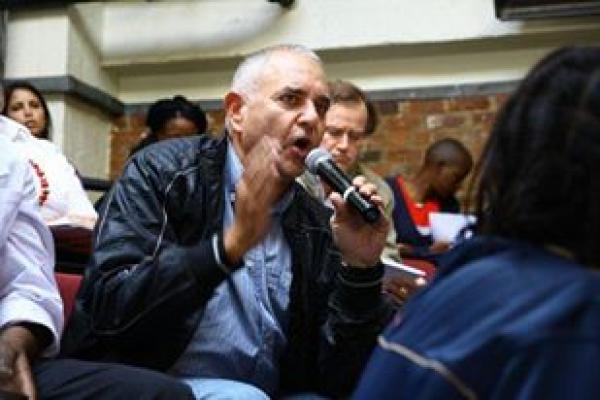Why we should support social movements

This week I finally signed up as a donor to Equal Education. I’d been meaning to do it for a long time. Small as my contribution is I’d like to urge all who can afford even R20 per month to start supporting the social movements. Here’s what motivated me to finally sign that debit order form.
I was as outraged as NEHAWU at the deaths of now over 23 young men in initiation rituals in Mpumalanga. All the more by the incomprehensible response of Ms. Candith Mashego-Dlamini, the MEC for Health in Mpumalanga, who said out loud on ENCA news that this was tradition and no one could say anything about tradition. She followed this incomprehensible position by saying that she could do nothing because she was a woman.
The bright side of this tragedy was the response of NEHAWU’s Sizwe Pamla who backed up a hard hitting statement saying that it was “irresponsible, preposterous and even immoral that young people’s lives are destroyed in the name of tradition.” The statement added it was “shameful” that the guardians of our Constitutional rights in Mpumalanga province were “busy pandering to traditionalists with their archaic interpretation of customs. The human rights in this country are enshrined in our Constitution and cannot be handed over to cultural demagogues with their antiquated interpretations and methods.” I cheered!
NEHAWU’s excellent statement raises the question of what exactly is going on in the provincial health departments and how we prevent our human rights being handed over to demagogues cultural or otherwise. It also raises the question of why our bureaucracies are so woeful.
The answer perhaps lies in part in another interesting titbit from this week’s news. A small report in the Times by Katherine Child on 17 May caught my eye. It’s headed “Nothing works” - EC Head of Education. This is the view of Mthunywa Ngonso, currently Superintendent General of the Eastern Cape Department of Education (ECDoE), presented in an affidavit to explain why the ECDoE had failed to comply with a court order given by the High Court in November last year to appoint 7,000 teachers to fill vacant posts.
Mr. Ngonso explained that his department has no decision-making capability, suffers from poor leadership and has no financial controls. Why? Because “The department has never had appropriate or fully functional decision-making structures”, he said. “It lacks information on how many teachers it employs and what their qualifications are”. Of 23 district offices, he described 13 as “dysfunctional”. In this environment said, Ngonzo a “complete collapse of labour relations” prevented the appointments the court had ordered. In other words, SADTU is preventing the appointments because they want to control the patronage involved in making appointments, regardless of who is best qualified for the post.
Mr. Ngonso has plainly stated the problem that the Eastern Cape shares with many, not all, other provinces and government departments. The problem lies with the incapacity of our civil service as a consequence of the deal that was struck in 1994 in which everyone got to keep their jobs and homeland bureaucracies were indiscriminately incorporated into the new civil service. The excess posts created in the process remain with us leading to a hugely inefficient civil service with little comprehension and no commitment to the principles of our Constitution. Not surprising then that they are incapable of carrying out the often good intentions of policy.
In the Eastern Cape this is a result of the inclusion of the old Transkei, Ciskei and “white” bureaucracies into a single administration based in Bisho. “Skills”, such as they were, were lost. The new SA bureaucracy became the real power base for the ANC. And this power was increasingly used to serve the bureaucracy itself. This description of melt down in the ECDoE applies in equal measure to many other of our provincial and indeed many national departments and explains why a government which commands over a trillion rand a year delivers so little for poor people.
Let me not be misunderstood: of course there are decent, honest, hard working and capable people in our state apparatuses. But what can they do when they are captive to a venal bureaucracy? It was thinking about all of this that led me to sign that debit order for Equal Education. We need social movements to push our bureaucracy in the right direction regardless of who is in power. NEHAWU and other progressive unions will have to re-consider the tripartite alliance if they want to defend the Constitution from demagogues. For the rest of us, we better line up with the social movements. Something is going to give sooner or later.
Jack Lewis is a farmer, political economist and the former director of Community Media Trust.
Support independent journalism
Donate using Payfast

Don't miss out on the latest news
We respect your privacy, and promise we won't spam you.
Next: Chippa United’s Goldman hopes to stay in the PSL
Previous: Nyanga celebrates first gay pride march

This article is licensed under a Creative Commons Attribution-NoDerivatives 4.0 International License.
